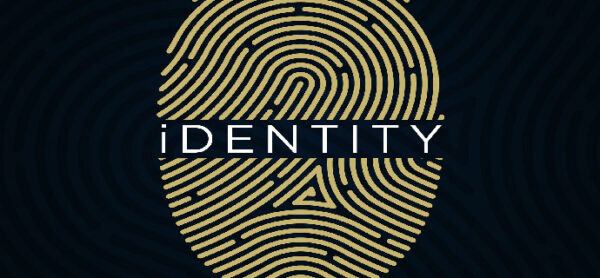If you have a troubled adolescent and wish to seek professional treatment, school counsellors, family doctors, and others may urge you to find a residential teen help program for your child. This is not a simple task, and deciding what kinds of programs are available and which would be best for your child may be daunting. We are a free parent advocacy group dedicated to assisting parents of troubled teens in locating the best facilities available. Let’s look at the different types of programs available for troubled teens and get some tips for choosing the best programs.
What are Programs for Troubled Teens?
Programs for troubled teens are services aimed at assisting teens who are experiencing a variety of mental health issues. Their goals range over a range of services that are tailored to your teen’s age, health, and gender.
If your teen is struggling with a specific mental health issue and is of a certain age, they have many alternatives for getting treatment. The location of the program (close to home? near an airport?) or the cost of the program are frequently factors that parents consider when selecting a program. They could also be predicated on other illnesses connected with mental health issues, such as substance abuse, sexual experimentation, or suicide ideation. Programs for troubled teens range from clinically intensive mental health hospital-like facilities for teens suffering from mental diseases such as bipolar disorder or paranoia to less intense therapeutic boarding school environments for teens suffering from less severe emotional issues.
Different Types of Troubled Teens Programs
Before deciding on the best facility, it’s a good idea to understand more about the many types of troubled teen programs available.
#1. Wilderness Camps
These short-term therapeutic camps last from a few weeks to a few months. Teens are generally isolated from their existing unfavourable milieu of family and school and live outdoors in more primitive settings. Experienced leaders, guides, and counselors teach teens about self-sufficiency, setting up camp, cooking, doing chores, and appreciating nature’s beauty.
Hiking, rock climbing, kayaking, fishing, and other activities are common in a wilderness camp. These programs are effective in motivating troubled teens to begin working on their problems. It helps them decide to try for long-term transformation. Wilderness camps do not typically include an academic component.
#2. Behaviour Boot Camps
These short-term programs, like wilderness camps, frequently have a military or warrior component. These programs follow a regular vocabulary schedule and rank similar to a military boot camp. They frequently include an intense exercise component as well as counselling and activities.
A behaviour boot camp, which is ideal for short-term improvement, can be a fantastic jump start for troubled teens who are having difficulty committing to change. Academics are typically absent from behaviour boot camps.
#3. Residential Treatment Centers
These are long-term facilities where teens can receive psychiatric and medical assistance for difficulties such as ADD, eating disorders, and substance misuse. Residential treatment clinics can be either short-term or long-term in nature. Long-term care facilities have an educational component in which qualified teachers engage with teens to help them stay on track in school.
Many residential treatment clinics include scheduled activities and recreation components. These activities help each teen achieve his or her behaviour modification goals. Here, therapy is an important part of a teen’s day, with group and individual sessions to address the teen’s difficulties.
#4. Therapeutic Boarding Schools
Therapeutic boarding schools, like residential treatment centres, are long-term teen care facilities. They run more like a school with many students, scheduled classes, licensed teachers, and other amenities. Therapy is also important, with individual and group sessions taking place several times per week.
Extracurricular activities abound in programs like these, ranging from standard high school organizations like theatre and debate to more odd ones like horseback riding and skiing.
Who Goes to Programs for Troubled Teens?
Programs for troubled teens mainly concentrate on mental health and behavioral difficulties. A program’s acceptance age ranges from young middle school to young adult. Some programs focus on teens dealing with less severe, more common diagnoses, while others accept more severe ones. One struggling youth program may be quite specific in the issues they treat, while another may treat a much broader spectrum.
Some of the issues teen who enters a program for troubled teens may have are :
- Depression
- Anxiety
- Adoption problems.
- Oppositional Defiant Disorder.
- Defiant behavior
- Learning disorders (ADHD, dyslexia, and nonverbal learning disorder)
- Anger Management Issues
- Self-harm
- School refusal
- OCD
- Trauma/PTSD
Choosing the Best Programs for Troubled Teens
Finding the right curriculum for your child may appear to be a challenging and time-consuming task. After all, you’re dealing with your child’s future here! Overall, the majority of trustworthy sources recommend respectable therapeutic boarding schools, residential treatment institutions, and wilderness rehabilitation programs. When looking for troubled teen programs, it’s critical to consider whether the programs are licensed and accredited. These are the programs to which you should give the most thought.
Contacting a program directly to make inquiries is the best way to find out more about what is offered, how long a program lasts, and other important details. It can also be helpful to consult with a case manager or an independent therapist for recommendations.
Positive Aspects of Programs for Troubled Teens
When parents start looking for programs for troubled teens, they have often already struggled for years to assist their child in striving toward a successful, happy future. Many parents may feel entirely alone during this tough period, even despairing at times.
Getting expert assistance is critical in determining the best treatment option for your child.
Once you’ve identified the greatest programming alternatives for your child, it’s time to figure out what makes each program unique. Programs with the following features are the most beneficial to troubled teens:
- Clinically sophisticated offerings: Programs with decades of experience on staff, as well as a number of therapeutic options, are incredibly beneficial to your child. These programs may provide a mix of group, individual, and family treatment. They may also incorporate equestrian therapy and other forms of experiential treatment.
- 24/7 care: Most parents want to know that their child is being well looked after and cared for 24 hours a day, seven days a week. Some programs for troubled teens have professionals on hand and monitor children at all hours of the day.
- Family involvement- Parents of troubled teens should be included in their child’s healing process. It is critical for families to work with their children on underlying family issues that may be contributing to their difficulties.
- Having a good time: Teens are still children. Children should have fun every now and again. Experiential therapy and learning adventures, such as backpacking, hiking, and mountain climbing, help troubled teens grow and heal while having fun. After all, a program for troubled teens should not feel like a punishment.

Is your Adolescent a “Troubled Teen”?
What precisely is a troubled teen? The wording, on the other hand, does not have a good reputation. Most people associate the word with children who have recently been released from juvenile correctional facilities. Many clinicians have developed programming expressly for that type of consumer.
However, many troubled teen programs that provide therapeutic assistance to teens who are just struggling with emotional, behavioural, or psychological issues also use this term to describe those concerns. Young individuals who struggle with oppositional defiant disorder, emotional outbursts, school rejection, or dangerous activities may be referred to as “troubled teens.”
Troubled Teens in the Media
- Eric Harris and Dylan Klebold, the teens responsible for the Columbine massacres, are the most well-known examples of troubled teens in the media who would have benefited greatly from troubled teen programs. Both teens suffered from mental illnesses that may have been treated with intense therapy.
- Demi Lovato is another example of a troubled teen. She has struggled with food problems and self-harm for many years. She was eventually admitted to a residential facility for treatment of her mental health issues. Also, she learned how to manage her mental health concerns and work toward becoming healthier and happier there. Following her therapy, Lovato has tried to combat the stigma of mental illness. She has inspired many young teens to get help for their problems.
- Drew Barrymore is another well-known teen-turned-acclaimed actress who struggled with mental health concerns. Despite being far into her teens, Barrymore struggled with drug addiction from an early age. She enrolled in a residential treatment at the age of 13. She finally returned to acting after her therapy and has since gone on to a successful career as an actress and entrepreneur.
Read Also: Identity Foreclosure in Teens and Young Adults: Detailed Guide with Example
Programs for Troubled Teens Research
An investigation was performed on the efficacy of cognitive-behavioral treatment in a group of troubled teens. This study showed that by making particular changes to the therapy practicum, teens improved dramatically in terms of motivation, attention span, impulse control, and learning ability. This therapy helped females who were battling with substance abuse and other mental health difficulties work through the underlying issues that were causing some of the other behavioral disorders in the first place.
Youth development programs are gaining popularity as a means of assisting teenagers in becoming competent, engaged, and responsible adults. Many teens who attend juvenile development programs are suffering from despair, trauma, or substance abuse. Teens can benefit from youth development programs by gaining knowledge and insight into how to deal with the issues they confront in their everyday lives. These programs, which are often community-based, can assist at-risk teens in achieving success.
When Your Teenager Is Out of Control, Who Do You Call?
If you notice any red flag behaviors in your teen, speak with a doctor, counselor, therapist, or other mental health professional for help in finding suitable treatment. Even if you seek professional assistance, your work does not end; rather, it only begins.
There are many things you can do at home to help your teen and strengthen your relationship. And you don’t have to wait for a diagnosis to put them into action.
Keep in mind that your teen’s problems are not a sign that you have failed as a parent. Instead of assigning blame for the situation, concentrate on your teen’s current needs. The first step is to find a way to relate to what they are going through emotionally and socially.



